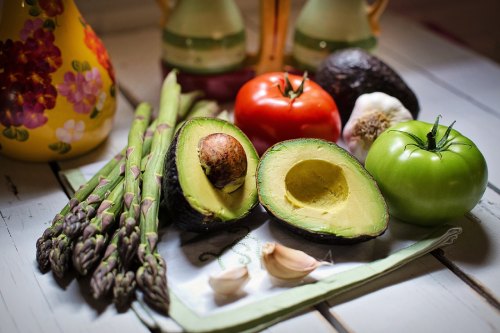Blog

How to Make the Switch to a Plant-Based Diet: (3 Simple Tips)

While fad diets have circulated for decades, one meal plan that’s never lost traction is plant-based eating. By adding more plants to our daily meals, we can lower the risk of heart disease and diabetes. Additionally, we’re also helping to reduce some of the harmful effects of climate change. Less meat, healthier living? Yes, please. Here are some practical tips for adopting a plant-based diet for your health (and the planet).
Stay Away from Convenience Foods
An influx of “fake meat” has recently inundated the plant-based food market. However, are these packaged food items better for us than fresh produce and other closer-to-nature menu items? As multiple health experts told the Guardian, not necessarily. Like other packaged foods, faux meats can pack a lot of extra “stuff” onto their ingredient lists. Excess sodium and fillers, for example, are common in these products.
Plus, the more you rely on convenience foods, the less likely you are to consume the healthiest plant-based foods: actual plants. Sticking with nutrient-dense plant foods such as legumes, seeds, leafy greens, and enriched grains is optimal. Of course, fortified plant milks and soybean foods also make the list of healthy vegan menu items.
Expand Your Menu
When embarking on a new nutritional path, it can be challenging to figure out what to eat. You might find that by going plant-based, you’re severely limiting your diet to several staples you know you like. The problem with this is it makes plant-based eating feel like a diet. Experts have confirmed that fad diets don’t work, and it’s because they’re too strict to stick with long-term.
Fortunately, eating less meat and dairy doesn’t mean you have to eat from a boring menu — vegetarian and vegan dishes can be just as delicious as any other meal. In short, the secret to eating more plants is including a range of colors with each meal.
And it’s not just dieticians who want you to expand your palate. As CBS News reports, experts say to consume 10 or more servings of fruits and veggies per day. You’ll find more antioxidants, vitamins, potassium, and tons of other nutrients in darker fruit and vegetables.
Keep Things Simple
Unless you’re a budding chef, there’s no reason to get overly complicated with your meals. There are plenty of complex recipes out there for those turning toward more plants and less animal-based foods. However, when it comes down to it, you only need a balance of nutrients — protein, carbohydrates, vitamins — to keep your body moving.
Cooking simply — and avoiding additives, preservatives, and excess sodium and oil — is accessible and healthy for us all. As a bonus, you’ll get more creative with the flavors in your meals without additional prep steps. Remembering that fresh food itself has plenty of flavor can help you avoid additives in your kitchen. For example, Medline Plus recommends using natural flavoring for your meals to skip the salt, such as:
- Lemon or another citrus fruit
- Fresh or powdered garlic and onion
- Any variety of pepper (black, green, white, red)
- Vinegar (rice wine, balsamic, etc.)
- Toasted sesame oil
- Dry mustard
- Fresh hot peppers
- Paprika, cayenne, etc.
Seniors and Plant-Based Diets
Although they’ve recently become trendy, plant-based diets aren’t just for younger generations. A diet rich in fruits, vegetables, and healthy grains can offer benefits for people of all ages. Concentrating on eating better is an essential first step toward longevity.
Of course, just because you improve your diet doesn’t mean you can abandon regular exercise. Exercising regularly well into your golden years is still crucial. And if you have Medicare Advantage, you may be eligible for the SilverSneakers program. Participants in the program receive access to over 13,000 participating fitness centers across the nation. SilverSneakers provides better access to fitness facilities — all through your existing healthcare plan. Furthermore, to take advantage of SilverSneakers, you also need to be 65 or older (or qualify for Medicare due to a disability) and a citizen of the United States.
Eating more plants is a simple way to get on track toward a healthier future. And regardless of your age or fitness level, consuming healthy foods is an excellent means of improving your lifestyle. Fortunately, what’s good for your body is also great for the planet.
Photo via Pixabay

Leave a Reply